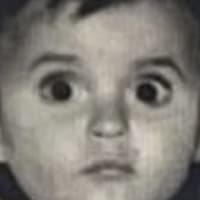Primo Levi, Italian chemist and writer, born in Turin in 1919, survived the Holocaust because of his knowledge of chemistry and returned to Italy, where he lived and produced until his death in 1987. His best-known work, "Se questo è un uomo" (If This Is a Man) published in 1947, is considered one of the most important memorial works of the 20th century. In his other book, "The Periodic Table," published in 1975 and considered the best science book ever written by the Royal Institution of Great Britain, Levi brings literature and science together. In this book, in the chapter "Silver," the author tells a story from when he was 47 years old.
It was during the 25-year reunion of graduates of his chemistry class in 1966 that his colleague Cerrato told him this story. Cerrato had always worked with photographic chemistry, spending four years in Germany responsible for a department of an x-ray paper manufacturing plant. There, with the highest standards of quality control, he encountered a mystery: how were intermittent batches of silver nitrate papers being spoiled? The contamination resulted from the opening of a tannery 6 km upstream, which, in addition to killing the fish in a small river, left the water contaminated with polyphenol. This water was used by the laundry to wash the overalls worn by the workers at the factory.
The most relevant point of this story, from the perspective of environmental humanities, is the incorrect disposal of waste and pollutants that can cause various types of damage to the environment and living beings, such as reduced fertility, soil erosion, ecological imbalance, reduced vegetation, public health problems, and food contamination.
It's 2024 and we're still dealing poorly with disposal on all continents. We need more narratives and efforts to support the need of human beings and states to address these issues responsibly and effectively, both in the individual and collective spheres.
From an environmental humanities perspective, we need alternatives and solutions to realize the potential we have to deliver a good life for all living beings on this planet, with the awareness of the goodness that also exists in us.
Analize Nicolini
